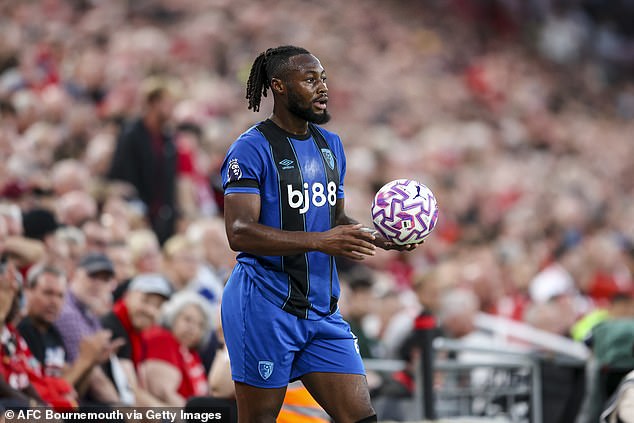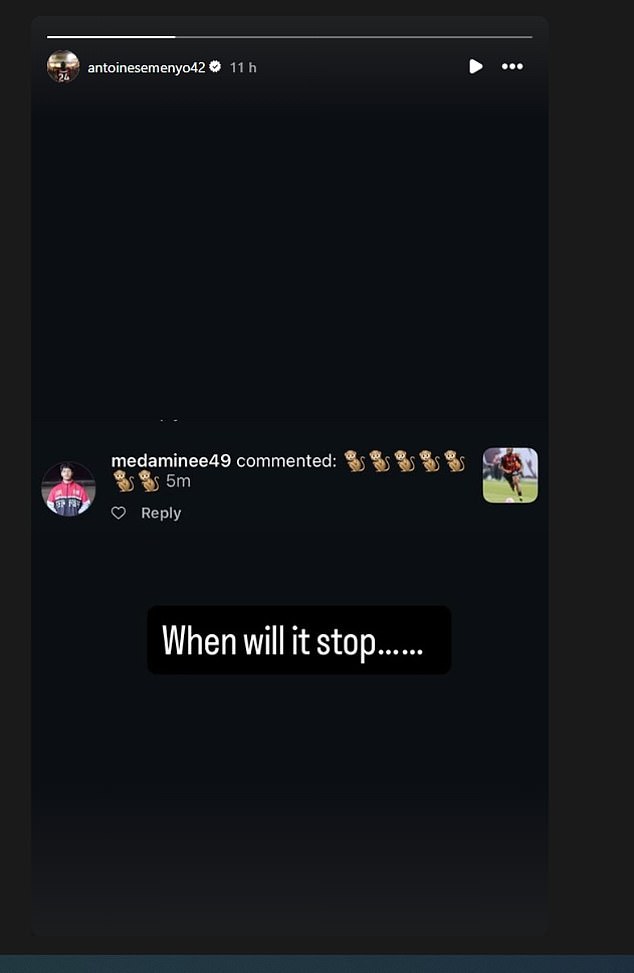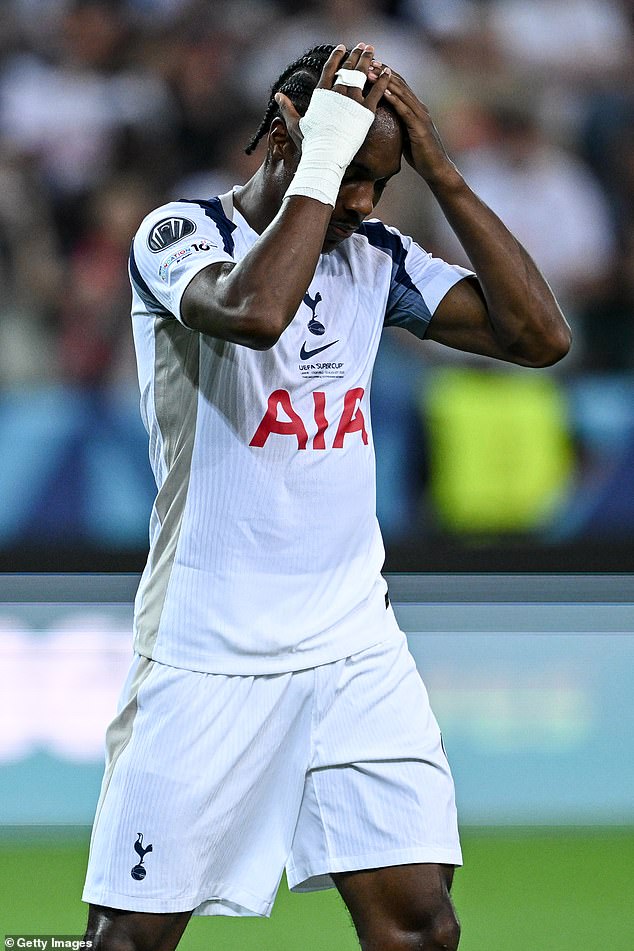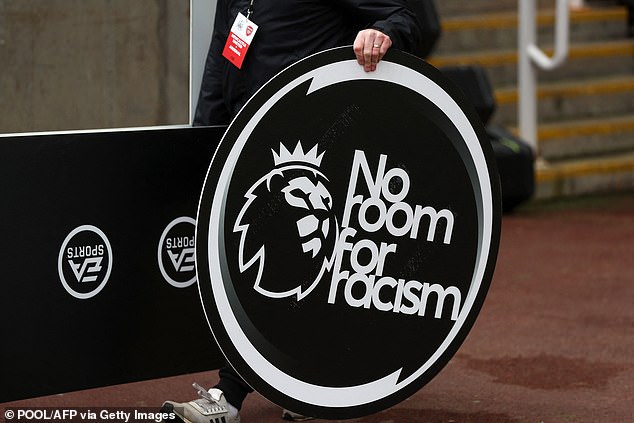Of all the questions asked on Friday night, Antoine Semenyo cut to the heart of football’s racism problem with some efficiency.
It came in a social media post a few hours after a curtain-raiser between Bournemouth and Liverpool that was, by turns, emotional, fabulous, pulsating, and utterly appalling.
Of course, the latter traced to the interaction half an hour in, when a Liverpool supporter is alleged to have racially abused Semenyo, necessitating the pausing of the match and, eventually, the fan’s ejection from Anfield.
Was it the same supporter in a wheelchair who was later escorted out by police? That hasn’t been confirmed as of yet.
But we know it didn’t end with one moron’s removal, because for black players, the count always runs higher. So when Semenyo subsequently logged onto his Instagram account that night, there was more: an anonymous user had sent him a string of seven monkey emojis.
Semenyo’s response was to post: ‘When will it stop’?

Antoine Semenyo reported racist abuse from a fan during Bournemouth’s clash with Liverpool

The Ghanaian forward was subjected to vile abuse on social media following the game
That he, and we, are forced to ask such questions in 2025 says everything about a cancer that continues to exist within the game.
For all the positive intentions behind t-shirts and bent knees, they all saw their meaning diluted and fade against one infuriating fact: they were knives in a gun fight. They just weren’t enough when stacked against a societal ill.
Some will argue that one man in a crowd and another in his underpants at a laptop warrants proportion. But that overlooks a key point – one is too many. One is a continuation, feeding into the toxic lineage of a problem that had already been discussed in the previous 48 hours when Tottenham’s Mathys Tel faced disgusting racial abuse for missing a penalty against PSG.
As Kick It Out wrote on Friday night: ‘This is a stark reminder of an ugly reality: black players are facing this every week.’
If we go back to April of this year, the Premier League sought to contextualise the breadth of the issue in English football. Their point was that instances of online racist abuse were declining year on year, but the most alarming statistic was that they had investigated more than 3,000 cases since 2020.
Incidentally, Kick It Out’s own data points to record levels of broader discrimination alongside racism in the 2024-25 season, so even if we split the difference between interpretations, the cancer is still there. Still persisting. Still giving us cause to follow a match of breathtaking drama and swings with discussions about the intellectual shortcomings of some in attendance.
There was something distinctly pleasing about Semenyo’s reaction on the pitch to his in-stadium encounter, which meant scoring two goals, including one of great quality to briefly level the match at 2-2.
A temptation exists here to say it was the best response. But Semenyo is a brilliant footballer and brilliant football is his job. Getting abused over the colour of his skin is not. He showed tremendous character, but it should never have been required in that context. Again, it’s 2025.

Mathys Tel was also subject to abhorrent abuse after missing a penalty for Tottenham against PSG

The incidents only further serve to highlight the ongoing issue of kicking racism out of football
Addressing racism, stomping it out, belongs to other departments higher up the chain. I dare say, such an outcome might be impossible, but the most egregious error would be to stop exploring new means of trying.
Finding such a solution is always the hardest part. The referee on Friday, Anthony Taylor, did well in following the existing protocol: upon the first reporting of racist abuse, you inform the managers, which he did. The next step would be to remove the players from the pitch, and the third, if racism persists, is to then abandon the game. Steps two and three weren’t necessary on Friday, thankfully.
But if we are deliberating how to achieve progress, is there scope to truncate the process? What about going straight to step two? Would it be beyond the powers of a racist brain to have a little pause for thought if his or her actions led immediately to players leaving the field?
It might be time to give such drastic action a chance.











